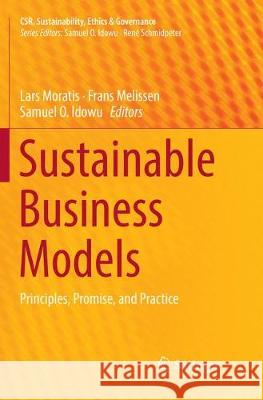Sustainable Business Models: Principles, Promise, and Practice » książka
topmenu
Sustainable Business Models: Principles, Promise, and Practice
ISBN-13: 9783030088019 / Angielski / Miękka / 2018 / 422 str.
Kategorie:
Kategorie BISAC:
Wydawca:
Springer
Seria wydawnicza:
Język:
Angielski
ISBN-13:
9783030088019
Rok wydania:
2018
Dostępne języki:
Numer serii:
000464707
Ilość stron:
422
Oprawa:
Miękka











